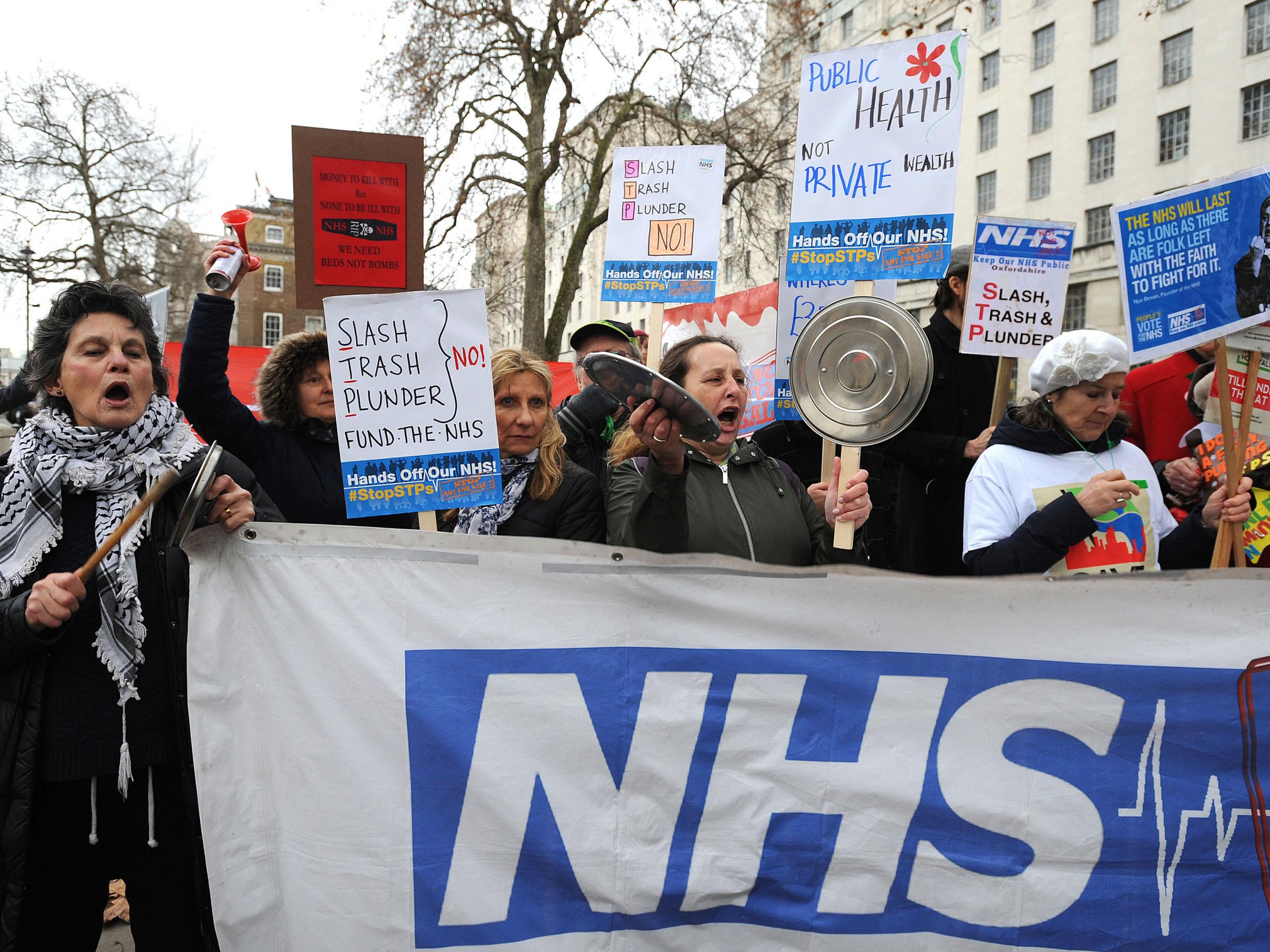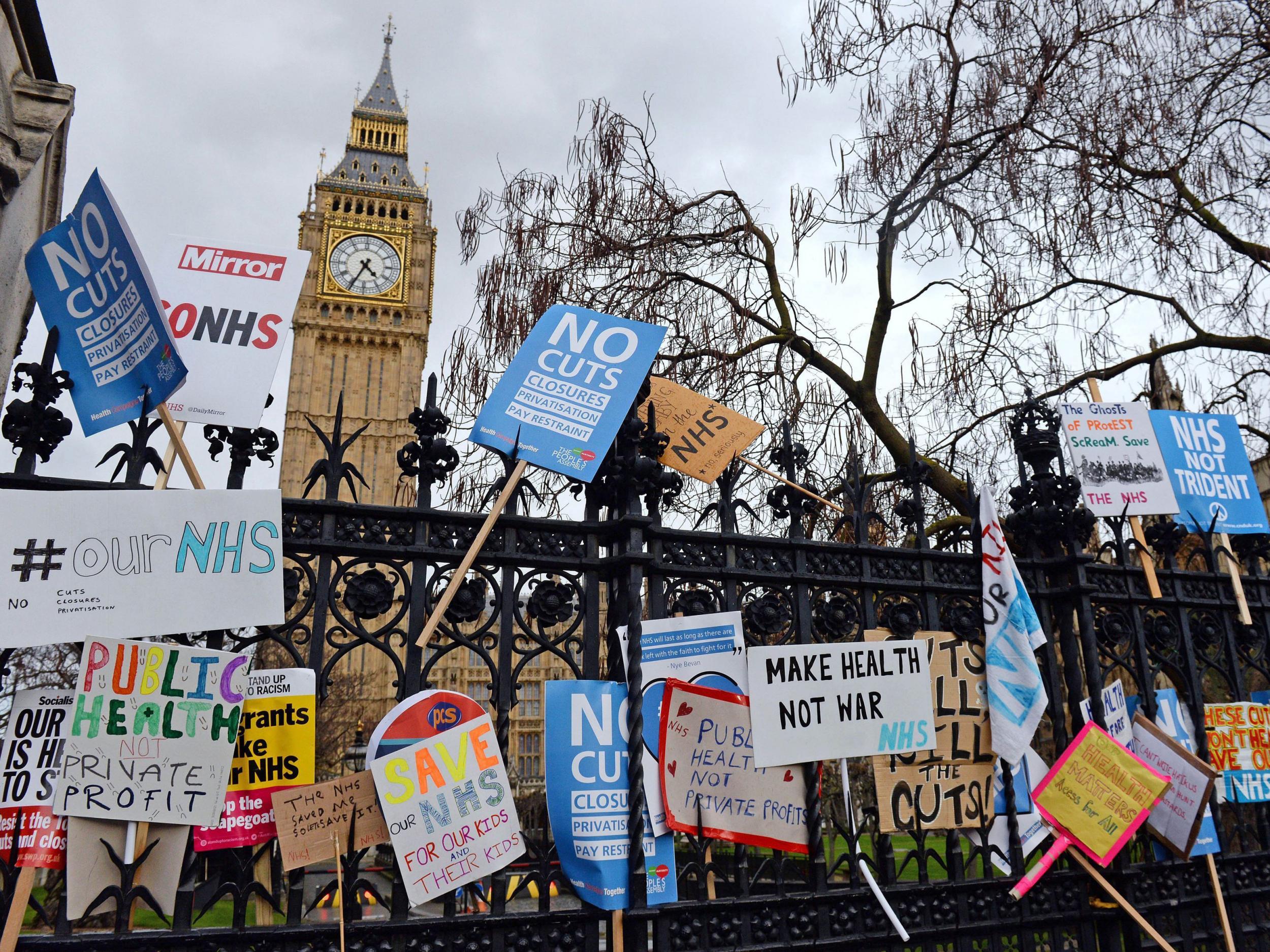NHS 18-week wait target 'jettisoned in all but name'
Chief executive says he expects waiting times to rise significantly as 'trade off' for improvement in other areas

Your support helps us to tell the story
From reproductive rights to climate change to Big Tech, The Independent is on the ground when the story is developing. Whether it's investigating the financials of Elon Musk's pro-Trump PAC or producing our latest documentary, 'The A Word', which shines a light on the American women fighting for reproductive rights, we know how important it is to parse out the facts from the messaging.
At such a critical moment in US history, we need reporters on the ground. Your donation allows us to keep sending journalists to speak to both sides of the story.
The Independent is trusted by Americans across the entire political spectrum. And unlike many other quality news outlets, we choose not to lock Americans out of our reporting and analysis with paywalls. We believe quality journalism should be available to everyone, paid for by those who can afford it.
Your support makes all the difference.Patients will have to wait longer for non-urgent operations, the head of the NHS has said.
Simon Stevens, chief executive of NHS England, said he expects waiting times to rise slightly as a “trade off” for improvement in other areas, such as hitting the four-hour A&E target and better cancer care.
Longer waits can be expected for pre-planned operations, which include things like hip and knee replacements, cataract removal, hernia operations and laparoscopies.
The Royal College of Surgeons expressed concern, saying the 18-week wait target has been “jettisoned in all but name”.
Unveiling a blueprint for the NHS for the next two years, Mr Stevens also said hundreds of thousands of patients would no longer be referred to a consultant by their GP.
Instead, GPs will be able to phone consultants to ask for advice, while other measures will be put in place to cut the number of people needing to be sent to hospital for care.
Hospitals will also be told part of their funding will be tied to improving health generally – with staff urged to have a “quiet word” in patients’ ears if they drink or smoke too much.
Other measures to save the NHS cash, already announced, include cutting the prescriptions bill for items such as sunscreen, fish oils, painkilling plasters, gluten-free foods and travel vaccines.
Mr Stevens admitted that waiting times were coming under pressure and that choices had to be made.
The NHS has a target that 92 per cent of patients should be treated within 18 weeks of referral by their GP.
But the NHS has not hit this target since February 2016 and performance has been slipping since then.
Mr Stevens said: “We are saying that we expect that the number of operations that the NHS pays for will continue to go up, but we recognise that – right now about nine out of 10 people get their operations in under 18 weeks – in some parts of the country that will be under pressure.
“We won’t second-guess what that looks like, we want to try and keep short waits in the system where we can.
“We do expect and we do say here there is a trade off here ... We do expect there will be some marginal lengthening of waiting lists but this will still represent a strong, quick waiting times experience compared to 10 years ago, let alone 20.”
Mr Stevens said demand on the health service was growing, which had led to tough decisions.
He said: “What we are saying is that we have a health service that is bigger year on year ... What we also recognise is that a combination of a growing and ageing population, the number of new treatments that are coming on and the rise in demand being experienced means that we have to make some choices.”

Mr Stevens declined to say “anything new” on whether he was happy with Government funding for the NHS.
In January, Mr Stevens told MPs it would be “stretching it” to say the NHS got more money than it asked for from ministers.
Now, Mr Stevens said: “What we say here is that we accept that the 2017/18 budget for the National Health Service is fixed, and so we’ve set out what we intend to do within the budget that’s available.”
Turning to incentives for hospitals to tackle smoking and drinking, he said: “There is going to be an incentive on hospitals to have a quiet word, because the evidence shows that if you’ve had a heart attack or are in hospital for something, that’s actually the moment when people are willing to think about making changes to their lifestyle.”
The new document presented by Mr Stevens sets out how GP practices that are seen to refer too many patients to hospitals for specialist care will have their referrals scrutinised more for whether they are clinically appropriate.

All clinical commissioning groups (CCGs) will also review their “referral management processes”, in some cases enabling direct referrals such as to physiotherapists for back pain.
GPs will also have an “advice and guidance option” where they can chat to a specialist “to avoid the need to default to an outpatient referral”.
Mr Stevens said there was a “big variation between individual GP practices in different parts of the country” when it came to referrals, although referral rates more broadly have been lowered.
He said patients did not all need to go to hospital, adding: “It’s clearly going to be hundreds of thousands of patients at least for whom better alternatives which don’t involve being sent off to the outpatient department will be put in place.”
Treatments judged to be of low clinical value will also come under scrutiny, such as spinal surgery and injections for back pain.
Health Secretary Jeremy Hunt said: “This plan sets out how the NHS will meet the challenges of an ageing population head-on and deliver further improvements for patients in key priorities – better cancer treatment, expanding GP access, and transforming mental health care.”
Join our commenting forum
Join thought-provoking conversations, follow other Independent readers and see their replies
Comments